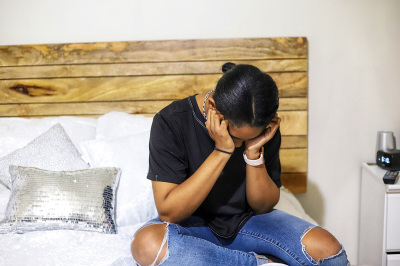Have you heard of National Pain Awareness Month?

“Prince Humperdinck: First things first — to the death!
Westley: No. To the pain.
Prince Humperdinck: I don't think I'm quite familiar with that phrase ...”
—“The Princess Bride”
Personally, I was not quite familiar with National Pain Awareness Month, though it has been on the national calendar every September for 23 years now. (The idea seems to be that we should all be more, well … aware of and sensitive to the people around us living daily in chronic discomfort.
I assume the people who arranged for that designation were suggesting compassion specifically for those who suffer physically: a permanent limp, a ringing in the ears, migraines, arthritic joints, or any one of a thousand other maladies that will likely never really ease or go away. I am not unsympathetic to such miseries.
A few months ago, I was blindsided by a sudden, searing pain along the right side of my face. When it lingered for a few days, complicating everything, I visited my doctor, who immediately — almost blithely — assessed it as something called trigeminal neuralgia, and told me there was nothing much for it but to live with the torment for the rest of my life.
Old-timers, he said, used to call what I had “the suicide disease,” since – before suitable medications became available – it was common for those afflicted to kill themselves to end the agony.
Uh-huh. Were there … other options? Well, the doctor suggested, medicine might help — or not. The pain might just go away — or not. It could ease up gradually … or grow worse and worse … or just show up, now and then, for unpredictable intervals.
Happily, I am (so far) in the group medication helps. But it was a sobering proposition, in those early days, to realize that my life, as I’d known it, could be over, and the years now left to me might well be defined by nagging, throbbing torment.
But, of course, that could also be said for a lot of pains beyond the physical. Those stricken by the death of a loved one, for instance, and unable, somehow, to surmount the blow. Those who have never been able to mend their shattered heart, in the wake of a bad break-up or divorce. Or those who cannot shake off the effects of a deep injustice — their freedom diminished, their voice silenced, their fundamental rights denied.
Worse, some abide in the shadow of agonies both physical and emotional: rape, an abortion, a cruel sexual surgery once sorely desired but now recognized, too late, as brutal folly.
And some, of course, stagger under spiritual pain. The sins whose effects we still reel from. The joys sacrificed to unquenchable guilt. The dull misery of a life lived devoid of peace with the past — or hope for the future.
None of those pains are political, per se, yet all of them affect — and are affected by — our politics. Our wounds, I suspect, are responsible, more than any other single reason, for why we vote the way we do. For what triggers our impulse to believe in one candidate more than another … for why we let one issue override all others in the quiet solitude of the ballot box.
Sadly, our political debates, discussions, and demonstrations increasingly ignore that human dimension. We’ve mostly lost our ability to see our opponents as people very much like ourselves: wounded, weary, grappling for simple solutions in a relentlessly more complicated world.
The most crucial legal and political questions of our time are increasingly isolated from the tangible sufferings that have birthed them. In our legislatures and executive offices, our courtrooms and our classrooms, at our church altars and our kitchen tables, the pains of our fellow man have become merely … issues. Abstract ideas that spur vindictive invective and overheated boilerplate.
We’ve lost our feel for each other’s suffering. In our desire to wound our enemies, we fail to see how badly they’re already hurt.
“Life is pain,” the observant Wesley reminds his Princess Bride. “Anyone who says differently is selling something.”
It’s something to remember, in the throes of a brutal election year, as so many volubly pine for those things that will bring us together as a nation, that will unite us as a people and restore our domestic tranquility. The one thing we share, more than anything else, is our pain.
Let’s start there. Abraham Lincoln, who knew something of pain, suggested in his last inaugural address that this is — and perhaps always will be — the unfinished work of all Americans: “to bind up the nation’s wounds.” But first, of course, we have to become more aware of them.
September is as good a month as any for that.
Chris Potts is a writer with Alliance Defending Freedom (@ADFLegal).




























